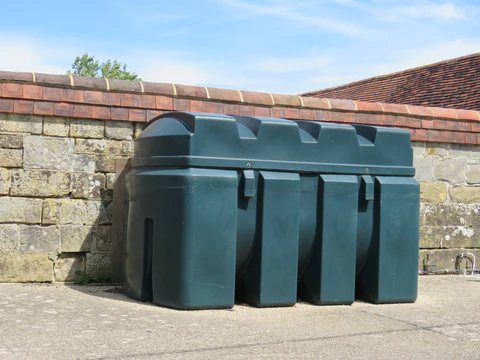Heating oil is a reliable and efficient fuel source for home heating, offering consistent warmth and comfort during the colder months. However, like any fuel, it’s essential to prioritise safety when storing and handling heating oil to minimise the risk of accidents, spills, and environmental harm. In this article, we’ll explore some best practices for safely storing and handling quality heating oil shropshire to ensure the well-being of both your household and the environment.
1. Choose the Right Tank
When it comes to storing heating oil, selecting the right heating oil tank is crucial for safety and reliability. Choose a tank that is specifically designed for storing heating oil and meets all relevant safety standards and regulations. Tanks should be made of corrosion-resistant materials such as steel or fibreglass and should be installed by a licensed professional to ensure proper placement and secure anchoring.
2. Regular Maintenance and Inspections
Regular maintenance and inspections of your heating oil tank are essential for identifying and addressing potential issues before they escalate into safety hazards. Schedule annual inspections by a qualified technician to check for signs of corrosion, leaks, or damage to the tank and its components. Additionally, be proactive about routine maintenance tasks such as cleaning, fuel level monitoring, and filter replacement to keep your tank in optimal condition.
3. Monitor Fuel Levels
Keeping track of your heating oil levels is essential for preventing overfilling and spills. Install a reliable fuel level gauge or monitoring system to track fuel levels accurately and ensure that you don’t exceed the tank’s capacity. Be mindful of fluctuations in fuel consumption, especially during peak heating seasons, and schedule timely deliveries to avoid running out of fuel or overfilling the tank.
4. Practice Safe Fuel Delivery
When receiving heating oil deliveries, it’s essential to practise safe procedures to minimise the risk of spills or accidents. Ensure that access to the tank is clear and unobstructed, and provide clear instructions to the delivery driver on where to park and how to access the tank safely. Monitor the delivery process closely and be present to oversee the filling operation, verifying that the correct amount of fuel is delivered and that all valves and fittings are properly secured afterward.
5. Handle Spills Promptly and Properly
In the event of a heating oil spill, it’s crucial to respond promptly and effectively to minimise environmental damage and health risks. Have a spill response plan in place that outlines the necessary steps for containing and cleaning up spills, including notifying relevant authorities and following proper disposal procedures for contaminated soil or water. Keep spill cleanup materials on hand, such as absorbent pads, booms, and spill kits, and familiarise yourself with their proper use.
6. Practise Safe Handling and Storage
When handling heating oil, it’s essential to take precautions to prevent spills, leaks, or accidents. Store containers of heating oil in a secure, well-ventilated area away from sources of ignition, heat, or open flames. Use appropriate safety equipment, such as gloves and safety glasses, when handling heating oil, and avoid smoking or using electronic devices near fuel storage areas. Additionally, label containers clearly to avoid confusion and ensure that only authorised personnel handle heating oil.
Safety should always be the top priority when storing and handling heating oil. By following these best practices, homeowners can minimise the risk of accidents, spills, and environmental harm associated with heating oil use. From choosing the right tank and conducting regular maintenance to monitoring fuel levels, practising safe fuel delivery, and handling spills promptly and properly, taking proactive steps to ensure the safe storage and handling of heating oil is essential for the well-being of both your household and the environment.

